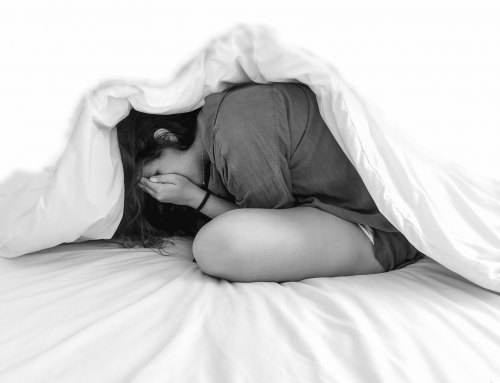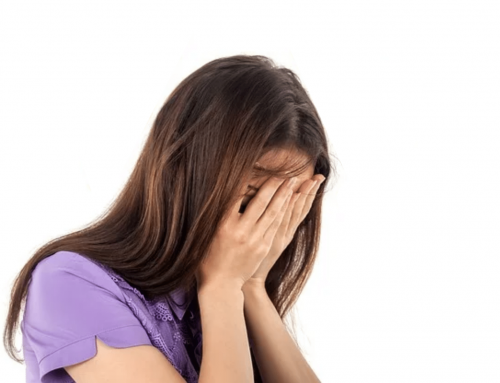According to the World Health Organisation depression affects one in ten of us at some point in our lives and can affect people of any age.
Sadness and feeling low are natural emotions and it is normal to feel this way sometimes. However, if the feelings do not improve within a two-week period, it is possible that you are depressed.
Depression is a long lasting low mood that affects our ability to do everyday things, feel pleasure or take an interest in activities. Depression affects everyone differently; symptoms can range from mild to severe (clinical depression). Mild depression does not impact on everyday life, but makes doing things and finding them worthwhile difficult.
Severe depression seriously impacts on our everyday life, with a possibility of being life threatening. Sometimes people do not realise they are depressed, especially if the symptoms are more physical.
The symptoms of depression are varied and extensive, and unique to the individual. Some individuals with depression may only present a few of the symptoms, whilst others may experience several.
Although many of these symptoms are also relative to other conditions, the following is a list of some of the symptoms of depression:
-
- Persistent low mood, or sadness for two weeks or more.
- Feeling numb, empty, full of despair and/or tearful.
- Low self-confidence or self-esteem.
- Feelings of guilt, being a bad person, unlikable, or not good enough.
- Avoiding social events and/or activities you usually enjoy.
- Feeling useless and unable to cope with life.
- Feeling bored all the time.
- Feeling isolated and unable to relate to others or ask for help.
- Can’t see a future for yourself.
- Thinking everything is pointless and life is not worth living.
- Thoughts of death or suicide or suicide attempts.
- Feeling more irritable, frustrated, or aggressive than usual.
- Self-harming.
- Loss of sex dive.
- Increased feelings of anxiety.
- Physical aches and pains with no obvious physical cause e.g. headache, stomach ache.
- Trouble concentrating on things and/or poor memory.
- Loss of energy and tired all the time.
- Sleeping and/or eating more or less.
- Moving very slowly.
- Increase in use of tobacco, alcohol and/or drugs.
Causes of Depression
The causes of depression are complex and not fully understood. Depression can be caused by one or several reasons, sometimes the cause remains unidentified.
Often depression is triggered by unwanted traumatic events such as a relationship breakup, job loss, bereavement, physical or sexual assault. Sometimes it can be a reaction to life changes such as moving house, changes in life phases e.g. retirement, children moving out of family home etc.
It is how we respond to these negative events that determines if we experience depression in relation to them or not. Yet, depression is not always triggered by external events.
Medical conditions affecting the brain and nervous system, hormonal imbalances and changes, low blood sugar, medication side effects, consumption of alcohol, recreational drugs and smoking, diet, and insomnia can all be causes of depression.
Genetics is often thought an explanation for depression, however, although depression can run in families it is unclear if this is due to inherited genes, learnt behaviour or being in a negative environment, or possibly a combination of all three.
Chemical changes in the brain is often assumed to be a cause of depression, if the condition improves with antidepressants. However, it is possible that the chemical changes are an effect of the depression and not the cause.
Recovering from depression
Full recovery is possible, although there is no quick fix. Often people fully recover from depression without treatment.
Types of treatment will vary depending on your level of depression, and can help increase recovery time. Talking therapies are used across all levels of depression, they include counselling, which helps to get to the root cause of the depression. Cognitive Behavioural Therapy (CBT) uses tools to replace negative thought cycles with more positive and realistic thought cycles.
Mindfulness practice retrains the mind, helping us to decrease stress and anxiety and become more grounded by focusing more on the moment. With more severe levels of depression, antidepressant drugs are often used.
One of the most significant aspects of recovering from depression is, what you can do to help yourself.
Some therapies are most effective if you practice outside the therapy sessions (e.g. CBT), progress is therefore dependent on time and effort. Lifestyle changes that can help are, gradually increasing your exercise routine.
Exercise can lift moods, increase energy, improve sleep and appetite and can also increase endorphins (a brain chemical that makes you feel happy).
Eat three balanced meals a day. Eating too much of the wrong foods (e.g. sugar) can put strain on your body, affecting energy levels, mood and create medical problems or add to existing ones. Reduce consumption of sugar, refined carbohydrates and caffeine and increase fresh fruit, vegetables and wholegrain foods. In addition, smoking, alcohol and drugs are depressants and also put your body under pressure. Reducing or cutting these out will help you feel better in the long-term.
Keeping busy by taking up hobbies can keep your mind busy, increase pleasure and enjoyment, give you something positive to think or talk about. Hobbies may also help you to connect with others, which can help keep things in perspective, increase your support network, and keep you grounded.
If you are not feeling able to take up a hobby just yet, try connecting with friends and family via text, email, phone calls or visits. You could join a self-help group or online forum where you can receive support from people going through similar experiences to yourself, sometimes it can help to know you are not alone.
Looking after yourself is vital to feeling better about yourself. This includes taking care over your appearance, giving yourself permission to enjoy or treat yourself e.g. a day out or pampering yourself.
The first step is to decide you’re going to help yourself, then how you intend to do that! It is not advisable to make lots of changes all at once, this can be overwhelming and you may set yourself up for failure. Instead, set yourself achievable goals and focus on one or two things that you can build upon gradually.
We are happy to discuss any concerns with you by telephone or email and this service is free. If we can provide assistance then an initial appointment will be offered. You can call us on 07412 674550 or send us a message here.
Thank you to Mia Ford, Honorary Psychology Assistant for this article.
If you think you are experiencing depression it is best to call your GP or a psychology service for help and advice. If you feel you need to talk to someone the Samaritans have a 24-hour help line, call 08457 90 90 90 or e-mail jo@samaritans.org.
Websites and further reading that may be helpful:
Mind: Understanding depression
The Mix: Essential support for under 25s: Understanding depression







